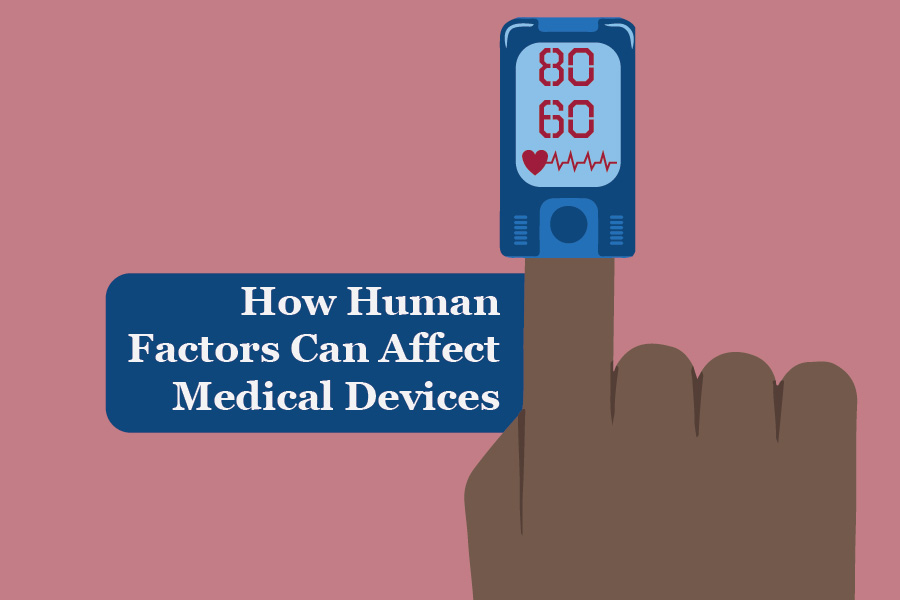Last week, the FDA published a safety communication on how the accuracy of pulse oximeters can be affected by skin pigmentation. Specifically, there were concerns that darker skin pigmentations can considerably affect the validity of results read from oximeters, both over the counter and prescription.1 This is yet another example of why human factors and usability engineering is so critical in medical device development.
Through the COVID-19 pandemic, the use of pulse oximeters skyrocketed. These devices, available primarily over the counter, are used to estimate oxygen saturation in the blood. This was particularly important during the pandemic, as patients used oximeter readings as a preliminary sign of respiratory health. The effects of skin pigmentation on pulse oximeter readings have been examined since as early as the 1980s, but came back into the spotlight recently given the spike in usage. The New England Journal of Medicine (NEJM) published a letter in late 2020 showing evidence that Black users of oximeters had “nearly three times the frequency of occult hypoxemia that was not detected by pulse oximetry as White patients.” (Sjoding MD, et al., 2020)2. The results of this study were brought to the attention of the FDA, which is now actively evaluating pulse oximeter accuracy.
The FDA is now working with manufacturers to assess pre- and post-market data, with a focus on patients with darker skin pigmentation. Currently, the guidance document provided by the agency advises the inclusion of at least two darkly pigmented participants in clinical trials of pulse oximeters, it is expected that they will update the guidance pending the results of their current investigation.3
We have provided an analysis of how important human factors engineering is before, but this is another real-world example of its criticality. Whether it is skin pigmentation, color blindness, or even cognitive abilities, it is important that medical device manufacturers fully integrate usability engineering into their products. As medical devices tend to become more “at home devices”, you can guarantee that the FDA will enhance its guidance on human factors engineering. If you need design controls or usability engineering support for your device, EMMA International is here to help! Give us a call at 248-987-4497 or email info@emmainternational.com to get in contact with our team of experts today!
1FDA (Feb 2021) Pulse Oximeter Accuracy and Limitations: FDA Safety Communication retrieved on 02/28/2021 from: https://www.fda.gov/medical-devices/safety-communications/pulse-oximeter-accuracy-and-limitations-fda-safety-communication?utm_medium=email&utm_source=govdelivery
2Sjoding MD, et al. (Dec 2020) Racial Bias in Pulse Oximetry Measurement. New England Journal of Medicine. Retrieved on 02/28/2021
3FDA (2013) Pulse Oximeters – Premarket Notification Submissions retrieved on 02/28/2021 from: https://www.fda.gov/media/72470/download






